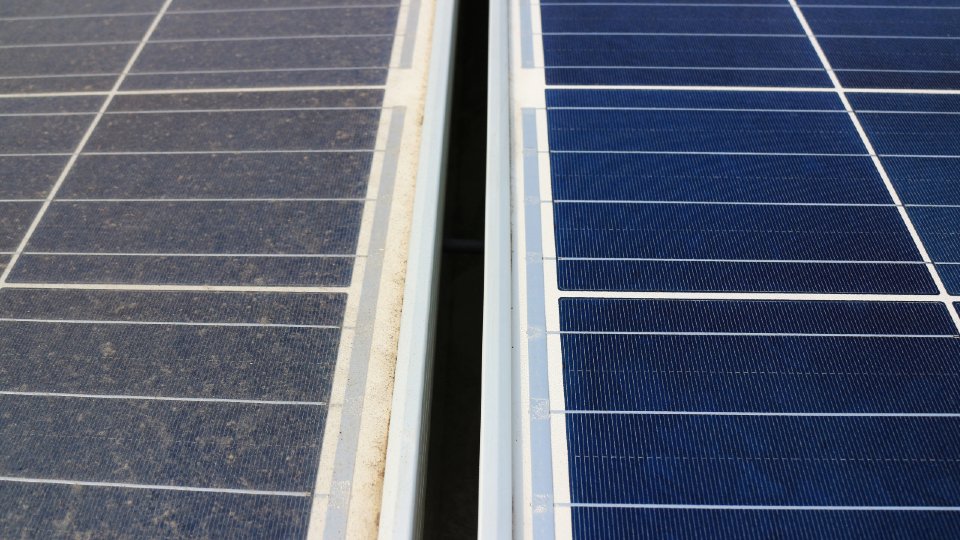Scientists at Loughborough University in the United Kingdom are developing a water-repelling, anti-soiling coating for PV modules that could considerably reduce the frequency of expensive cleaning cycles.
The researchers said that polymer-based hydrophobic anti-soiling coatings have already been tested in solar modules. They said they only work in principle, as they cannot withstand constant exposure to environmental stress or to abrasion damage caused by regular cleaning.
The new solution consists of a thin abrasion-resistant inorganic coating fabricated via chemical vapour deposition (CVD), the research team said.
“The coating will be designed to ensure it is capable of being applied at an industrial scale using a chemical process that is compatible with glass manufacturing,” the team explained, without providing any additional technical details.
The U.K. Engineering and Physical Sciences Research Council (EPSRC) is providing the project with £1.2 million ($1.6 million) of funding. It is being developed in collaboration with University College London and the support of industrial partners such as U.K.-based PV drone specialist Above Surveying,Japanese glass manufacturer NSG Group, and Solar Farm Cleaning Ltd.
Several modules in production already include anti-reflective coatings to boost output. Dutch materials supplier DSM is in the process of launching a coating to be applied retroactively to older modules. Anti-soiling coatings are also gaining ground commercially, as project developers learn how to boost project output while keeping operations and maintenance costs to a minimum.
This content is protected by copyright and may not be reused. If you want to cooperate with us and would like to reuse some of our content, please contact: editors@pv-magazine.com.




5 comments
By submitting this form you agree to pv magazine using your data for the purposes of publishing your comment.
Your personal data will only be disclosed or otherwise transmitted to third parties for the purposes of spam filtering or if this is necessary for technical maintenance of the website. Any other transfer to third parties will not take place unless this is justified on the basis of applicable data protection regulations or if pv magazine is legally obliged to do so.
You may revoke this consent at any time with effect for the future, in which case your personal data will be deleted immediately. Otherwise, your data will be deleted if pv magazine has processed your request or the purpose of data storage is fulfilled.
Further information on data privacy can be found in our Data Protection Policy.